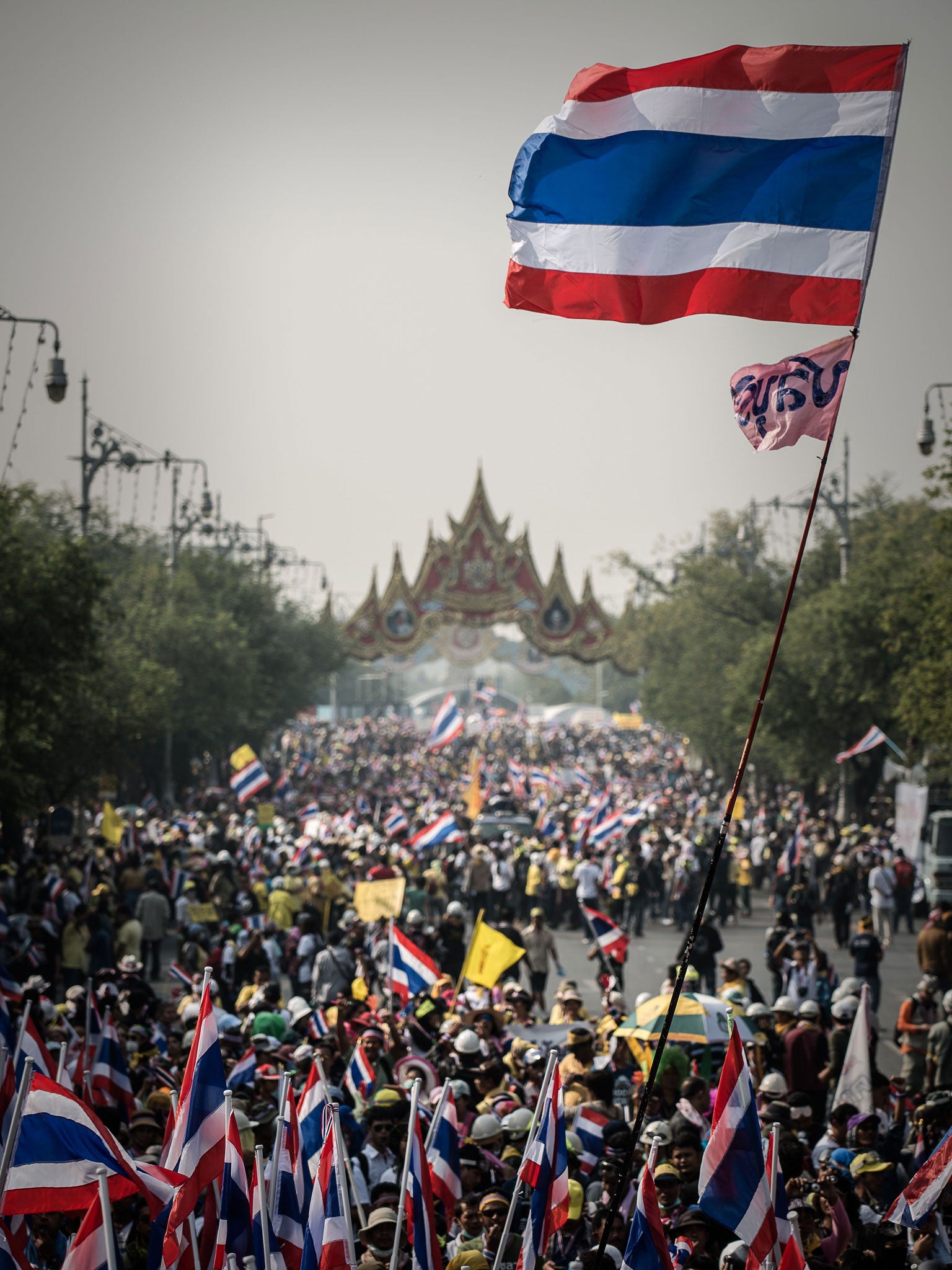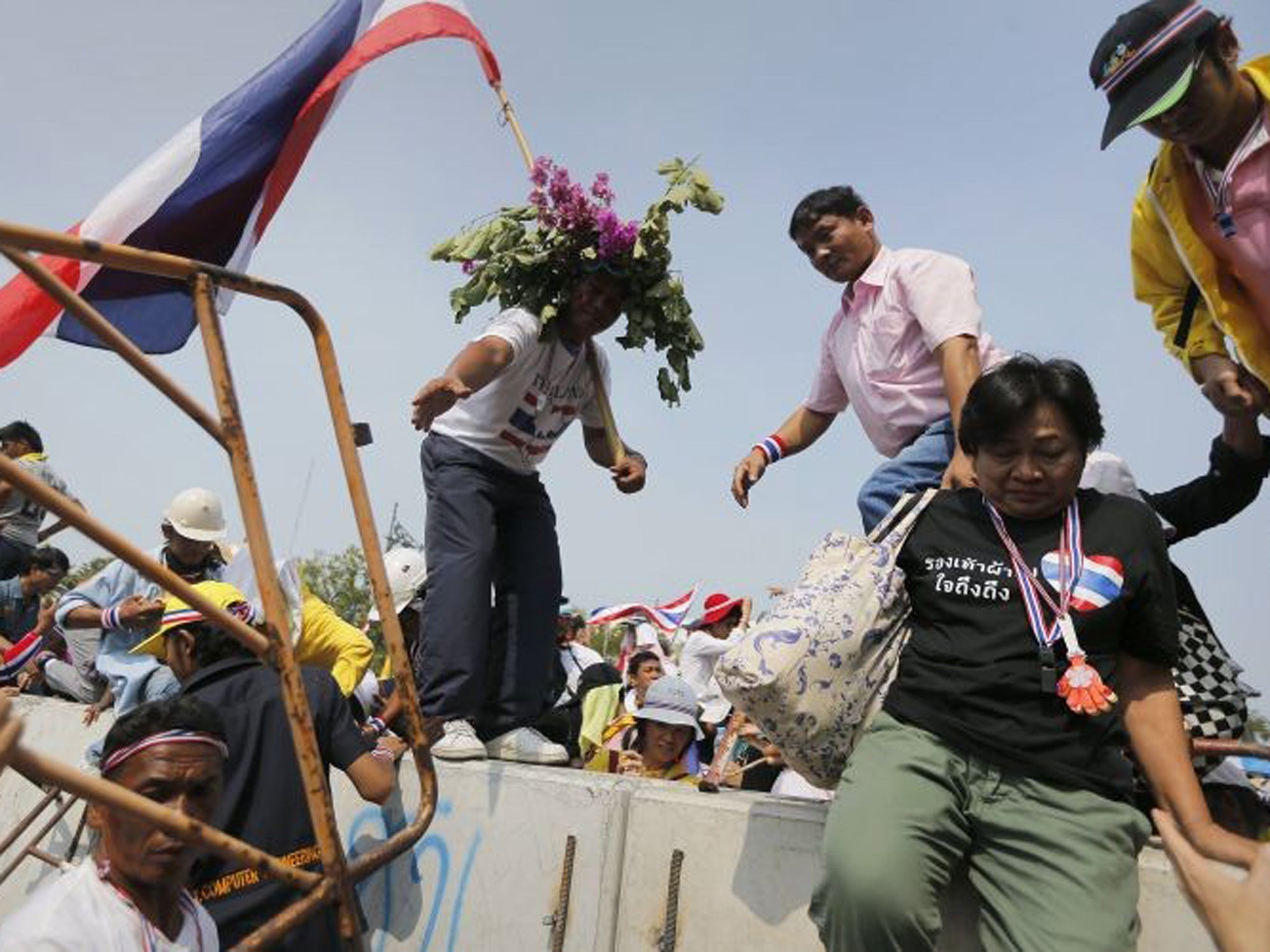Stalemate in Bangkok: protests go on despite Thai PM Yingluck Shinawatra’s surprise election offer
Analysts say call for early elections is unlikely to satisfy opponents who want to rid country of Shinawatra family's influence

Your support helps us to tell the story
This election is still a dead heat, according to most polls. In a fight with such wafer-thin margins, we need reporters on the ground talking to the people Trump and Harris are courting. Your support allows us to keep sending journalists to the story.
The Independent is trusted by 27 million Americans from across the entire political spectrum every month. Unlike many other quality news outlets, we choose not to lock you out of our reporting and analysis with paywalls. But quality journalism must still be paid for.
Help us keep bring these critical stories to light. Your support makes all the difference.
The Thai Prime Minister Yingluck Shinawatra’s surprise decision to call snap elections failed to end mass rallies in Bangkok last night.
In a day that saw hundreds of thousands of protesters march across the capital, the Prime Minister announced the decision to dissolve parliament just over halfway through her four-year term following a month of anti-government rallies.
“Let the people decide the direction of the country and who the governing majority will be,” she said in a televised address.
Suthep Thaugsuban, a protest leader, claimed victory in a speech outside the Prime Minister’s office on Monday evening, saying sovereign power “has been taken back by the people”.
The main opposition Democrat Party resigned from parliament en masse on Sunday and is yet to decide whether to take part in the snap election, called for 2 February. It will make a decision this week, said its spokesman Chavanond Intarakomalyasut.
“We are not thinking of winning or losing elections at this stage; we just want the best for the country,” he told The Independent.
The government has faced almost daily protests after it tried to pass an unpopular amnesty bill through parliament that critics said would have smoothed the return of the Prime Minister’s exiled brother, the billionaire tycoon Thaksin Shinawatra, also a former leader of the country.
The government had termed the proposed legislation “a political reset” after nearly a decade of cyclical violence and protests. But rallies have continued in Bangkok since the Senate defeated the bill a month ago.
Sensing waning government popularity, protest leaders have stepped up their demands for the end of Mr Thaksin’s influence and even a boycott of products linked to his family business empire, which includes internet services, hospitals and restaurants. Four people were killed last week as government supporters clashed with demonstrators in Bangkok.
“To end the situation, Yingluck has to show more humility and listen to the people,” said Mr Chavanond. “So far, we have never even heard the word sorry from the government.”
Although opinion polls in recent weeks have shown waning support for the Prime Minister, Ms Yingluck’s support remains strong in the north of the country, with analysts expecting another election win in February. Thaksin-linked parties have won every election in Thailand since he won a landslide victory on a populist platform in 2001.
“We are fine with losing the elections but if Yingluck comes back to power she would do things for her family – for her brother – and the situation would be unchanged,” said Mr Chavanond.
Protest leaders continue to call for an interim administration appointed by ailing 86-year-old King Bhumibol Adulyadej and for Thai politics to be purged of the influence of Thaksin, the man many consider to be the exiled power behind his sister’s administration.

Crowds outside Government House continued to call for intervention by the military last night. Thailand has witnessed at least 20 attempted or successful coups in the past century – but so far the army has tried to appear impartial.
“A coup would only lead to further problems,” Thailand’s Army Chief Prayuth Chan-ocha told the Bangkok Post.
With the opposition continuing to seek extra-parliamentary means to bring down the government and the Shinawatras showing little sign of exiting Thailand’s political scene, reconciliation seems unlikely, said the political analyst Thanet Aphornsuvan.
“The elections won’t get us a resolution. We’re going to have another deadlock,” said Mr Thanet. “The only way Democrats can get their way is through a coup d’état.”
Subscribe to Independent Premium to bookmark this article
Want to bookmark your favourite articles and stories to read or reference later? Start your Independent Premium subscription today.
Join our commenting forum
Join thought-provoking conversations, follow other Independent readers and see their replies
Comments